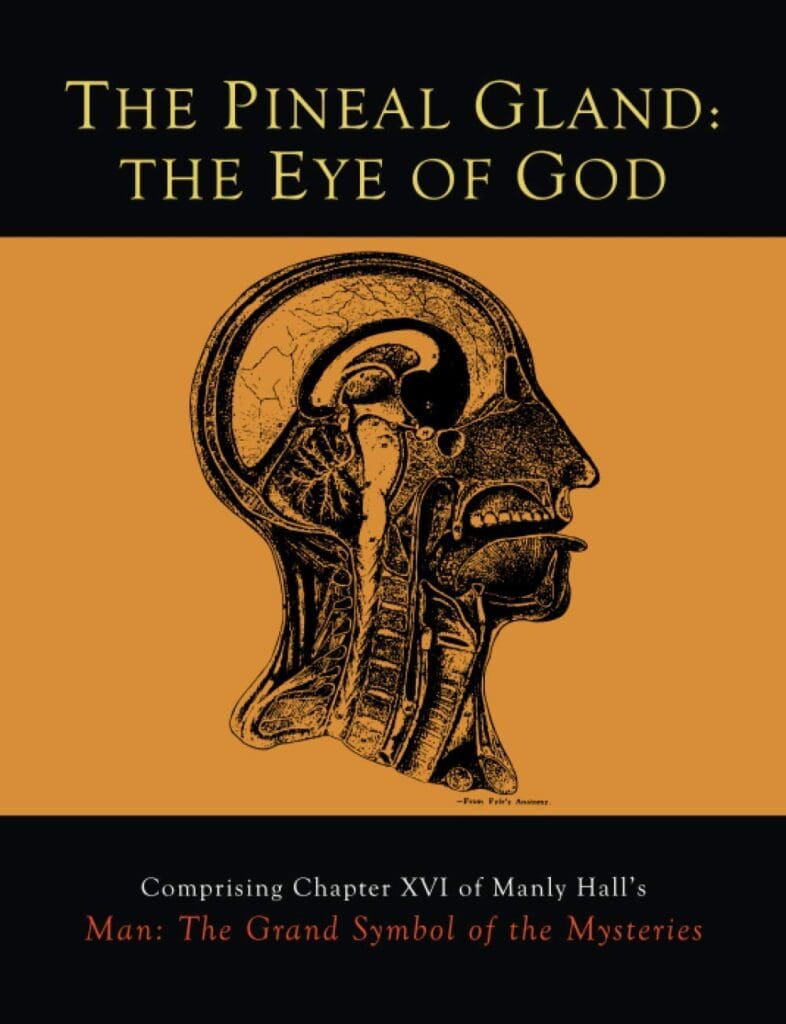
Introduction
The human body is a complex system, governed by a multitude of hormones that regulate everything from growth to metabolism, mood, and sleep. At the forefront of this intricate hormonal orchestra is the pituitary gland. But, what hormone does the pituitary gland release? Today, we delve into this enigma, unraveling the science behind the “master gland” and its pivotal role in our physiology.
To further appreciate the complexity of our endocrine system, I highly recommend the book The Pineal Gland: The Eye of God. This insightful read deep-dives into the significance of the pineal gland, often considered the counterpoint to the pituitary in our hormonal control system. It’s an excellent resource that complements our exploration today, providing a broader perspective on the endocrine system’s intricate design.
The Pituitary Gland: The Master Conductor
Understanding the Pituitary Gland
The pituitary gland, a tiny pea-sized organ nestled at the brain’s base, is often referred to as the “master gland.” Why? Because it controls several other hormone glands in your body, including the adrenal glands, thyroid gland, and ovaries/testes, to name a few.
Hormones Released by the Pituitary Gland
The pituitary gland releases an array of hormones, each with unique roles and target organs. These include:
- Growth Hormone (GH)
- Thyroid-Stimulating Hormone (TSH)
- Adrenocorticotropic Hormone (ACTH)
- Follicle-Stimulating Hormone (FSH)
- Luteinizing Hormone (LH)
- Prolactin (PRL)
- Oxytocin
- Antidiuretic Hormone (ADH)
Each of these hormones has a specific function, from regulating growth and development to controlling reproductive functions and maintaining our body’s water balance.
Detailed Functions of Pituitary Hormones
Growth Hormone (GH)
Fulfilling a central role, GH stimulates the growth of various tissues in the body, including bones and muscles. Moreover, it boosts protein production, promotes fat utilization, and controls carbohydrate metabolism. So, it’s an active agent in keeping our bodies growing and balanced.
Thyroid-Stimulating Hormone (TSH)
As the name suggests, TSH stimulates the thyroid gland. It prompts the gland to produce and release thyroid hormones, vital for regulating the body’s metabolism, energy generation, and growth and development.
Adrenocorticotropic Hormone (ACTH)
ACTH has a target in the adrenal glands. It triggers these glands to produce cortisol, a hormone that helps the body respond to stress. Also, cortisol plays a role in maintaining blood pressure, immune function, and anti-inflammatory processes.
Follicle-Stimulating Hormone (FSH)
In women, FSH is a key player in the menstrual cycle. It stimulates the growth of ovarian follicles, each containing an egg. In men, FSH encourages the testes to produce and sustain sperm, contributing to fertility.
Luteinizing Hormone (LH)
LH works in tandem with FSH in the reproductive system. In women, a surge of LH triggers ovulation and stimulates the production of estrogen and progesterone. In men, LH stimulates the production of testosterone, a hormone crucial for sperm production.
Prolactin (PRL)
Prolactin primarily enables women to produce milk after childbirth. However, it’s present in both sexes, contributing to sexual satisfaction and regulating the immune system, although these roles are less understood.
Oxytocin
Oxytocin, often known as the ‘love hormone,’ has roles in childbirth and lactation. It stimulates uterine contractions during labor and helps with the milk let-down reflex in breastfeeding. Additionally, it’s involved in social bonding and trust among people.
Antidiuretic Hormone (ADH)
ADH, also known as vasopressin, regulates the body’s water balance. It signals the kidneys to absorb more water from the blood, reducing urine volume and preventing dehydration. It also helps maintain blood pressure.
Each of these hormones, intricately interwoven, helps maintain the delicate balance of bodily functions. The pituitary gland, through these hormones, is indeed the ‘master conductor’ of our body’s intricate hormonal orchestra.
Real-life Testimonials: The Impact of Pituitary Hormones
Testimonial 1: Sarah’s Struggle with Growth Hormone Deficiency
Sarah, a 32-year-old woman, was diagnosed with a growth hormone deficiency in her late teens. This condition affected her growth and development during adolescence. With appropriate GH therapy, she now leads an active and fulfilling life.
Testimonial 2: Mike’s Battle with Cushing’s Disease
Mike, a 45-year-old man, was recently diagnosed with Cushing’s disease, a condition caused by high levels of ACTH leading to excessive cortisol production. After a successful pituitary surgery, he has regained control over his body and life.
Testimonial 3: Jane’s Journey with Hypothyroidism
Jane, a 60-year-old woman, has been battling hypothyroidism, a condition linked to low TSH levels, for many years. With the right medication and lifestyle changes, she maintains her symptoms and enjoys her golden years.
Beyond the Obvious: Extraordinary Functions of Pituitary Hormones
While the hormones released by the pituitary gland have well-documented roles, ongoing research continues to unveil surprising functions. For instance, oxytocin, primarily known for its role in childbirth and breastfeeding, is also being studied for its role in promoting social bonding and trust.
- Oxytocin and Social Bonding A study titled “Oxytocin enhances brain reward system responses in men viewing the face of their female partner” published in the Proceedings of the National Academy of Sciences of the United States of America (PNAS) explores oxytocin’s role in social bonding, particularly in romantic relationships. The researchers found that oxytocin administration in men increased their reward system’s responses to their partner’s face, suggesting a role in promoting pair bonding. Read the study here
- Growth Hormone and Cognitive Function A review titled “Effects of growth hormone in the central nervous system” published in Growth Hormone & IGF Research elaborates on the role of GH in cognitive function. The authors discuss how GH and insulin-like growth factor-1 (IGF-1), a hormone stimulated by GH, have important implications for brain health, influencing cognition, mood, and brain aging. Read the study here
- Prolactin and Immune Function A review titled “Prolactin: Structure, Function, and Regulation of Secretion” published in Physiological Reviews provides insights into prolactin’s multifaceted roles. The authors discuss how prolactin may interact with the immune system, affecting the function of immune cells and potentially shaping the course of autoimmune diseases. Read the study here
These studies reveal how pituitary hormones, while primarily known for specific roles, may have a broader influence on our health and behavior than previously thought.
Q&A: Unraveling the Mystery of the Pituitary Gland
Q1: What is the most important hormone released by the pituitary gland?
All pituitary hormones play crucial roles. However, since the growth hormone influences numerous body functions, from cell regeneration to growth, metabolism, and body composition, it’s often considered one of the most vital.
Q2: What happens if the pituitary gland isn’t functioning correctly?
If the pituitary gland malfunctions, it can lead to a variety of conditions, ranging from gigantism (excess GH) to diabetes insipidus (lack of ADH). The effects depend on the hormone affected.
Q3: Can lifestyle factors influence pituitary hormone release?
Absolutely. Factors like stress, nutrition, exercise, and sleep can all impact hormone release.
Q4: Can pituitary disorders be cured?
Many pituitary disorders can be managed effectively with medication, surgery, or radiation therapy.
Conclusion
Understanding what hormone the pituitary gland releases is key to appreciating how our bodies function. These hormones, each with their unique roles, work together to maintain our health and wellbeing. For a deeper dive into the intricate world of endocrine glands, I recommend the book The Pineal Gland: The Eye of God. This comprehensive read will provide you with a greater understanding of these glands’ crucial role in our bodies.
As we’ve seen from our testimonials, when our hormones are balanced, we can lead healthy, fulfilling lives. But when imbalances occur, there can be significant impacts on our health. However, with the right treatment and management plan, these conditions can be effectively managed.
As we continue to learn more about our incredible endocrine system, we understand the crucial role these hormones play in our lives. Aiming to lead a balanced lifestyle, managing stress, maintaining good nutrition, and getting regular check-ups can go a long way in ensuring our hormonal orchestra plays a harmonious symphony.
Remember, knowledge is power, and understanding how our bodies work is the first step towards better health and wellbeing.
Other Articles
We appreciate your time spent exploring our article, ‘Unlocking Secrets: What Hormone Does the Pituitary Gland Actually Release?’. If you found this content valuable, we encourage you to spread the knowledge by sharing it with others.
We’d also like to invite you to delve deeper into other insightful articles on our website, SunnyDaysGo. Here’s a brief overview of what you can expect:
- Unlock Melatonin: What Does It Do For Health Now!: Unearth the extensive benefits of melatonin and how it contributes to your overall well-being.
- Vitamin A – Glossary Term: Get a detailed understanding of the crucial role Vitamin A plays in maintaining good health.
- How to Boost Elastin Production for Firmer, More Youthful Skin: Discover practical ways to encourage elastin production in your skin for a more youthful appearance.
- 10 Astonishing Things Fermentation Produces for Your Health: Learn how the process of fermentation can produce remarkable benefits for your health.
- Discover 7 Amazing Homeostasis Mechanisms That Keep You Healthy: Uncover the ingenious mechanisms your body utilizes to maintain homeostasis, ensuring optimal health.
We hope you find these articles engaging and informative, aiding you in your journey to better health. Happy reading!
